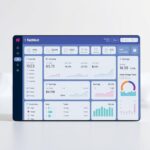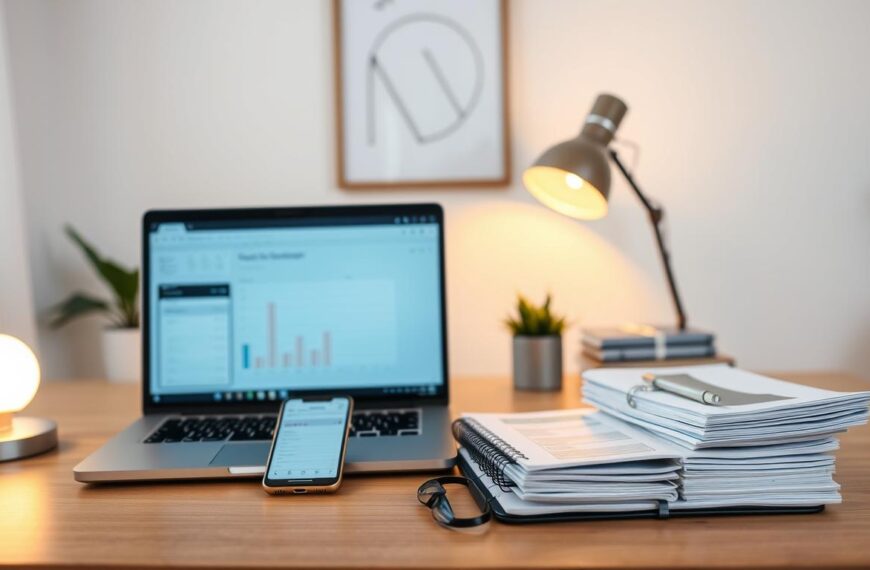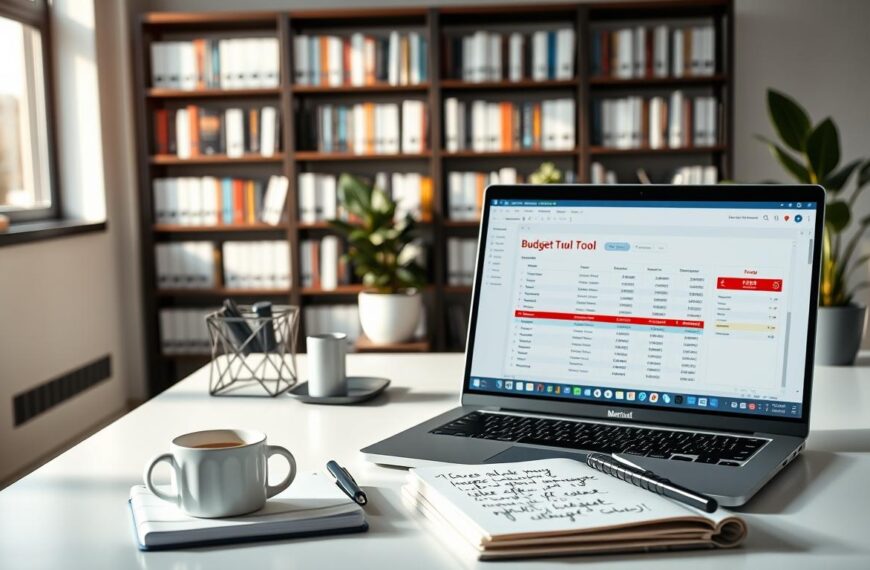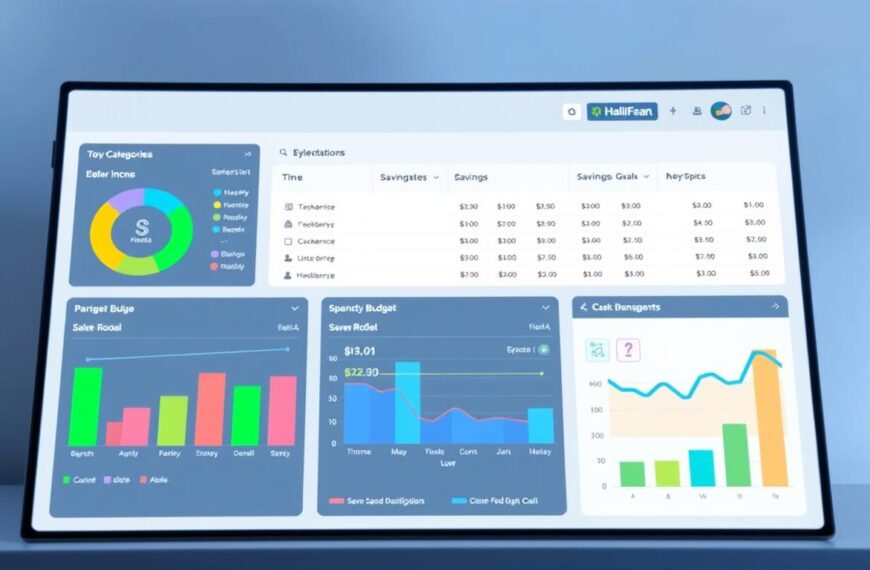In today’s fast-paced digital world, managing your finances effectively is more crucial than ever. With the rise of online budgeting tools, simplifying your financial planning has never been easier. These tools are designed to help you track your money, set realistic budgets, and monitor your spending habits, ensuring you stay on top of your finances.
One of the key advantages of using a dedicated budgeting tool is the ability to link your bank accounts and manually enter transactions. This allows for a comprehensive view of your financial situation, making it easier to identify areas where you can cut back and save. For instance, tools like Starling’s free budget planner can be set up in just 5-10 minutes, providing you with a clear and instant overview of your finances1.
Moreover, these tools offer features such as instant notifications for every transaction, enhancing your financial awareness and helping you stay in control of your money. With the ability to track multiple bank accounts simultaneously, as seen in apps like Budgetbakers, you can have a holistic view of your financial health2.
By using these tools, you can monitor your income, spending, and credit usage, set realistic budgets, and even plan for long-term financial goals. Whether it’s saving for a holiday, building an emergency fund, or planning for retirement, online budgeting tools provide the insights and structure you need to achieve your financial objectives.
Incorporating a budgeting tool into your financial routine can significantly reduce stress and improve your overall well-being by providing a sense of control over your finances. With the variety of options available, from mobile apps to spreadsheet templates, there’s never been a better time to take charge of your money and secure your financial future.
Introduction to Modern Budgeting Tools
Modern budgeting tools have revolutionised how individuals and businesses manage their finances, offering a blend of traditional methodologies and cutting-edge technology. These tools are essential for tracking income, spending, and credit management, providing a clear framework to avoid debt and build financial stability.
What Are Budgeting Tools and Why They Matter
Budgeting tools are applications or systems designed to help users manage their money effectively. They offer features like income tracking, expense categorisation, and credit monitoring, enabling users to make informed financial decisions. For instance, zero-based budgeting ensures every pound is allocated, while envelope budgeting helps control spending in specific categories. These methods are not just for individuals; businesses also benefit from accurate financial planning and debt management3.
Historical Context and Current Trends
Traditionally, budgeting involved manual charts and spreadsheets, which were prone to errors. Today, sophisticated digital tools provide real-time bank data integration and advanced analytics. Tools like zero-based and envelope budgeting remain relevant, adapting to modern needs. The integration of real-time data ensures up-to-date financial information, crucial for effective budgeting4.
| Feature | Traditional Tools | Modern Tools |
|---|---|---|
| Income Tracking | Manual Entry | Automated Sync |
| Spending Analysis | Manual Categorisation | AI-Driven Insights |
| Debt Management | Basic Calculations | Advanced Strategies |
Modern budgeting tools have evolved significantly, offering comprehensive solutions that cater to diverse financial needs, from personal savings to business planning.
Key Features to Consider in Budget Software
When selecting budget software, it’s essential to focus on features that enhance financial clarity and ease of use. Leading tools offer comprehensive solutions that cater to both personal and business needs.
Tracking Income, Spending, and Categories
A robust budgeting tool should provide detailed income tracking and spending analysis. By categorising expenses—such as household costs, transport, and leisure—you gain a clear financial picture. This feature helps identify spending patterns and areas for savings, ensuring your financial plan is both realistic and actionable.
Integration with Bank Accounts and Financial Data
Modern tools seamlessly integrate with bank accounts, providing real-time data updates. This capability ensures accurate tracking of day-to-day spending and overall financial plans. For instance, tools that prioritise secure handling of financial data from credit and debit cards offer enhanced reliability and peace of mind.
| Feature | Traditional Tools | Modern Tools |
|---|---|---|
| Income Tracking | Manual Entry | Automated Sync |
| Spending Analysis | Manual Categorisation | AI-Driven Insights |
| Bank Integration | Limited | Real-Time Updates |
With advancements in linking transactions and credit usage, these tools provide a holistic view of your financial health. A user-friendly interface is crucial, making it straightforward to track money and manage budgets effectively. For more insights, visit our guide on budgeting tools and how they can transform your financial management5.
Online Budgeting Tools: Features and Benefits
Modern budgeting tools offer a wide range of features designed to simplify financial management. These tools provide customisable budget planners, expense tracking, and robust security measures to ensure your financial data remains safe.
Customisable Budget Planners and Expense Tracking
One of the standout features of online budgeting tools is their ability to cater to individual needs. For instance, Starling’s Budget Planner allows users to set up a budget in just 5-10 minutes, offering a clear and instant overview of their finances6. Similarly, tools like Rocket Money provide detailed expense tracking, helping users identify areas where they can cut back and save. This level of customisation ensures that users can create a budget plan that aligns with their specific financial goals.
Security, Data Privacy, and Reliability
Security is a top priority for these tools. They employ robust measures to safeguard sensitive financial and credit data. For example, Rocket Money offers a subscription option that includes an interest-free pay advance and has helped users save over $1 billion collectively7. Additionally, tools like SoFi Relay provide real-time integration with bank accounts, ensuring accurate and up-to-the-minute financial information. This dual focus on usability and reliability makes these tools indispensable for effective financial planning.
With features like automated expense categorisation and real-time bank integration, these tools empower users to take control of their finances confidently. Whether you’re managing household costs or planning for long-term goals, modern budgeting tools offer the insights and structure needed to achieve financial stability.
Comparison of Leading Budgeting Applications
With numerous budgeting apps available, selecting the right one can be overwhelming. Let’s compare some of the top applications, focusing on their methodologies and user feedback.
Hands-On Zero-Based vs Envelope Budgeting Approaches
Zero-based budgeting requires allocating every pound to specific categories, ensuring no money goes unaccounted for. This method is ideal for those who prefer meticulous control over their finances. On the other hand, envelope budgeting involves dividing expenses into virtual envelopes for categories like groceries or entertainment, helping users stick to their limits. Both methods have their strengths: zero-based for detailed planners and envelope for simplicity.
User Reviews, Ratings and Cost Considerations
YNAB (You Need A Budget) is a top choice with a 4.8 App Store rating and 4.7 on Google Play. It costs £14.99/month or £109/year, offering a 34-day free trial8. Goodbudget is another strong contender with a 4.6 App Store rating, available for free or £10/month premium. EveryDollar, with a 4.7 App Store rating, offers a free version and a premium at £17.99/month9.
When choosing, consider both cost and features. YNAB’s trial is great for testing, while Goodbudget’s free version is perfect for basic use. EveryDollar’s premium adds advanced features for serious planners. For more insights, visit our budgeting apps comparison guide.
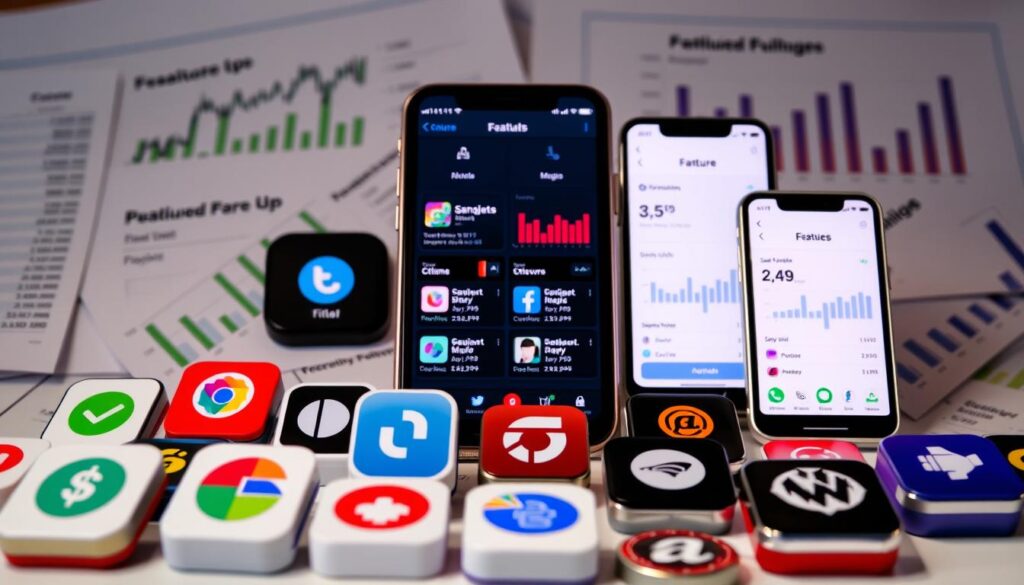
Practical Tips for Effective Financial Planning
Creating a solid financial plan is essential for achieving stability and security. By implementing practical strategies, you can manage your finances more effectively and make progress toward your long-term goals.
| Feature | Traditional Tools | Modern Tools |
|---|---|---|
| Income Tracking | Manual Entry | Automated Sync |
| Spending Analysis | Manual Categorisation | AI-Driven Insights |
| Bank Integration | Limited | Real-Time Updates |
Regularly updating your budget is crucial to reflect changes in income and spending habits. Managing debt effectively involves prioritising high-interest liabilities and employing robust credit management strategies. Tools like Starling’s Budget Planner offer instant insights, helping you identify overspending areas and track your financial health effectively10.
- Set realistic budget goals tailored to your financial situation.
- Use historical financial information for accurate planning.
- Monitor bank activities and reconcile monthly statements.
By following these strategies, you can improve your financial health and work towards long-term savings goals. Remember, effective financial planning is a continuous process that requires attention and adjustment over time.
Conclusion
Modern budgeting tools have transformed how individuals manage their finances, offering a seamless blend of traditional methods and cutting-edge technology. These tools provide comprehensive solutions for tracking income, spending, and credit usage, enabling users to achieve financial stability. By utilising features like customisable budget planners and secure data management, users can trust these tools to handle their financial information with care.
The comparison of leading applications highlights the unique approaches each tool offers, such as Starling’s Budget Planner and NerdWallet’s app comparisons, which provide instant insights and flexible budgeting options. For instance, Starling’s “Spaces” feature allows users to ringfence money for specific expenses, while YNAB’s approach focuses on the psychological aspects of money management, helping users shift their mindset from guilt to growth11.
Encouraging readers to evaluate their current methods and consider transitioning to modern digital tools can significantly enhance their financial oversight. With the variety of options available, from mobile apps to spreadsheet templates, there’s never been a better time to take charge of your money. Start exploring the budgeting solutions discussed in this article today and take the first step towards improving your financial health.
FAQ
How can I effectively track my money to improve my finances?
Start by monitoring your income and spending regularly. Use a reliable budgeting app or spreadsheet to categorise your expenses and stay informed about your financial status.
What steps should I take to create a realistic budget plan?
Begin by assessing your income and expenses. Set clear financial goals, whether short-term or long-term, and allocate your money accordingly. Regularly review and adjust your plan to ensure it aligns with your changing needs.
How can I manage my debt more effectively?
Prioritise your debts by focusing on high-interest loans first. Create a repayment plan and stick to it. Consider consolidating debts if it reduces your interest rates and simplifies payments.
What are the key features I should look for in a budgeting tool?
Opt for a tool that offers expense tracking, income monitoring, and category breakdowns. Ensure it integrates with your bank accounts and provides secure, reliable data handling.
How can I stay informed about my financial information?
Regularly check your bank statements, credit reports, and budget summaries. Use financial apps or tools to keep track of your spending and income in real-time.
What are the benefits of using a budgeting tool for my finances?
Budgeting tools help you track your income and expenses, identify spending patterns, and set achievable financial goals. They also provide insights to make informed decisions about saving, investing, and reducing debt.
How can I avoid overspending and stay within my budget?
Set clear spending limits for each category of your budget. Use budgeting apps to monitor your expenses in real-time and receive alerts when you approach your limits. Prioritise essential spending over discretionary purchases.
What is the best way to plan my finances for the day?
Start your day by reviewing your budget and setting spending priorities. Use a budgeting app or planner to track your expenses throughout the day and ensure you stay within your allocated limits.
How can I improve my credit score through better financial planning?
Pay your bills on time, reduce your debt, and avoid applying for too much credit. Regularly monitor your credit report and dispute any errors that may negatively impact your score.
What tools are available to help me manage my bank finances?
Utilise mobile banking apps, budgeting software, and financial planning tools. These tools allow you to track your income, monitor spending, and manage your bank accounts efficiently.
How can I create a budget plan that works for me?
Assess your financial goals, income, and expenses. Allocate your money into categories that align with your priorities. Regularly review and adjust your plan to ensure it remains effective and realistic.
What are the key categories I should include in my budget?
Common categories include housing, food, transportation, insurance, debt repayment, entertainment, and savings. Tailor these categories to fit your specific financial situation and goals.
Source Links
- https://n26.com/en-eu/blog/budgeting-tools
- https://www.prophix.com/blog/17-best-budgeting-and-planning-software/
- https://www.spendesk.com/blog/business-budgeting-tools/
- https://www.oracle.com/uk/performance-management/planning/what-is-budgeting-software/
- https://www.venasolutions.com/blog/8-features-your-budgeting-software-absolutely-must-have
- https://www.cnbc.com/select/best-free-budgeting-tools/
- https://www.forbes.com/advisor/banking/best-budgeting-apps/
- https://www.nerdwallet.com/article/finance/best-budget-apps
- https://www.ramseysolutions.com/budgeting/budgeting-apps-comparison?srsltid=AfmBOorjgEE9t6DgQtNx3iaogJa9A3vR3Wf9mVax53ZlLbKVn0cBCu7l
- https://www.moneysavingexpert.com/banking/budget-planning/
- https://www.wired.com/story/you-are-not-a-budget-rave/



